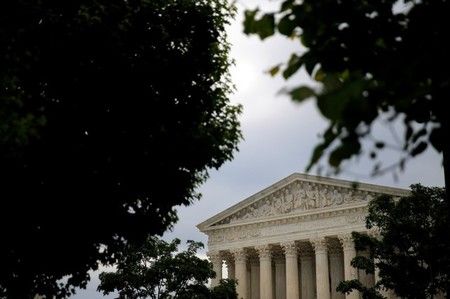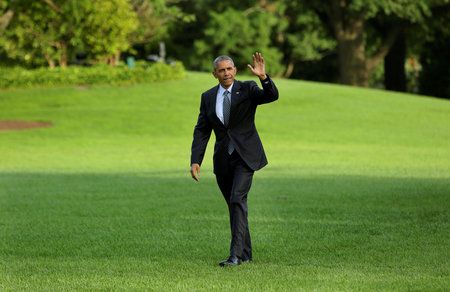Advertisement
Supreme Court backs police in Utah drug search case

By Lawrence Hurley
WASHINGTON (Reuters) – The U.S. Supreme Court on Monday widened the ability of prosecutors to use evidence obtained by police during an unlawful stop against a defendant in court in a case involving a Utah man who a narcotics detective found carrying illegal drugs.
The 5-3 decision threw out a lower court’s ruling that key evidence against Edward Strieff, convicted of methamphetamine possession and a related drug charge, was inadmissible because an officer obtained it in violation of the U.S. Constitution’s Fourth Amendment ban on unreasonable searches and seizures.
Three of the court’s liberals dissented, saying the decision gave too much power to the police at the expense of individual rights. Liberal Stephen Breyer joined the court’s four conservatives in the ruling, written by Justice Clarence Thomas.
Strieff’s lawyers contended that his constitutional rights had been violated because, although there was an existing warrant for his arrest, narcotics detective Douglas Fackrell did not know that when he stopped Strieff in a South Salt Lake City parking lot.
In a blistering dissent, Justice Sonia Sotomayor wrote that while Strieff is white, “it is no secret that people of color are disproportionate victims of this type of scrutiny.”
“The court today holds that the discovery of a warrant for an unpaid parking ticket will forgive a police officer’s violation of your Fourth Amendment rights,” she added.
In the 2006 incident at the heart of the case, Fackrell stopped Strieff after seeing him leave a residence that an anonymous tipster had said was being used by drug dealers.
After asking for his identification, the detective realized there was an outstanding warrant for Strieff’s arrest. He then arrested Strieff and searched him, finding a baggie of methamphetamine and drug paraphernalia.
Thomas, writing for the court, said Fackrell was “at most negligent” and that his mistakes were made in good faith.
The evidence obtained from the search was admissible at trial because the discovery of the existing warrant weakened the link between the unlawful stop and the search, Thomas said.
The court previously had allowed evidence from illegal searches in certain other situations, particularly when the police officer acted in good faith.
During the February argument in the case, Sotomayor said a ruling favoring the police would disproportionately impact localities where a large number of people have outstanding arrest warrants such as Ferguson, Missouri, where a white policeman killed an unarmed black 18-year-old in 2014, sparking protests.
(Reporting by Lawrence Hurley; Editing by Will Dunham)











